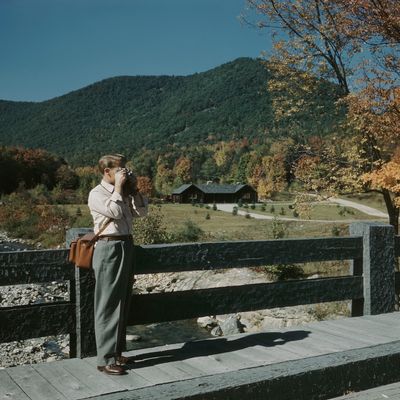
It is a truth universally acknowledged that when you get back from a vacation and someone says “I want to hear about it!” what they really mean is “I am being polite but I very much want you to keep this short, and please, for the love of God, do not show me photos.”
And a study recently published in the journal Psychological Science confirms it: We really, really don’t like hearing about other people’s new experiences, unless they’re not new to us. Want to trade stories with a friend who’s also traveled to wherever you’ve just returned from? Full speed ahead. Want to regale your pals with tales of your adventures in a place they’ve never been? Maybe hold off.
As a first step in the study, the participants were divided into two groups, speakers and listeners. Those who had been assigned the speaker role watched a short video (the content ranged from animated shorts to TED Talks to nature slideshows) and then were instructed to tell a story about what they had seen to a few listeners. In some cases, the listeners had already seen the same video; in others, they were hearing about it for the first time. Before launching into their story, the speakers filled out a survey predicting how the other people would respond to it, and the listeners recorded their reactions once it was done.
The results: People enjoyed stories much more when they were familiar with the subject matter — in this case, if they had already watched the video — even though the speakers predicted that the opposite would be true. In fact, the speakers generally believed that the listeners would award them a “novelty bonus” for including more new information in their stories; instead, they imposed a “novelty penalty.”
The reason, the authors argued, has to do with a mismatch between our own self-concept and our actual skills: We’re just not as good at storytelling as we think we are. “Human speech is riddled with informational gaps, and familiar stories allow listeners to use their own knowledge to fill in those gaps,” the study authors wrote. Or, as co-author Daniel Gilbert, a psychologist at Harvard, put it in a statement: “Our friends probably would enjoy hearing us tell them about a painting they’ve never seen or a book they’ve never read if we could describe those things well. But most of us can’t.”
“As a result,” he added, “our friends are actually a whole lot happier when we tell them what they already know because at least they understand what we’re talking about. We worry too much about thrilling our listeners and not enough about confusing them.” Experiences, in other words, don’t always hold up well in the retelling — the memory of coolest, craziest thing you did will stick with you for a long time, but your friends would just as soon forget about it.




